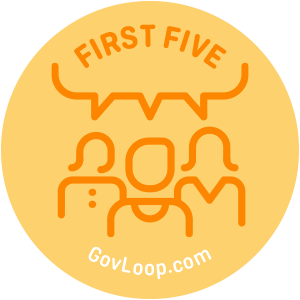Yes, the title is a tad dramatic. But as someone who’s slowly moving into the older echelon of the millennial generation, I find I’m still shocked when I hear about painfully obvious and fatal career don’ts fellow millennials continue to make. We know full well that young professionals already have to make up for a lot of slack when it comes to millennial stereotypes in the workplace. We also know that millennials are capable of great things, and are especially valuable in the public workforce.
But continuing to repeat these mistakes when they’ve been practically beaten over our heads in college and every job 101 workshop imaginable will only undermine the great contributions millennials can bring to the workforce. And while these professional no-nos may not end your career, they can certainly be detrimental to your professional reputation.
Here are the bad habits you need to break, before it’s too late:
1. Forgetting the “Thank You”
For some, this is eye-rollingly obvious. But you’d be surprised at how many of us forget to follow up after an interview, a coffee chat or even a favor from a colleague. Saying thank you is important to show appreciation as a measure of human kindness. Not doing so can also hurt your chances of landing the next job. In fact, studies have shown that 68 percent of hiring managers and recruiters believe receiving at least a thank you email matters in the decision-making process.
So before you get back from your interview, coffee meeting or any interaction where someone gave you their time and attention, either pick up the phone or take the time to write a brief, but thoughtful email. Here’s a list of example thank you templates to help. It doesn’t need to take you more than 10 minutes.
2. Showing Up Unprepared
There’s a difference between “I’m too busy and didn’t have enough time but tried my best” and “I simply don’t care enough.” And prospective employers and current supervisors can certainly tell the difference. Showing up to an interview without follow-up questions at the end is a real turnoff for any interviewer. Not to mention, there are hundreds, if not thousands, of articles littered over the internet with great questions you can ask after the job interview. If you’re short on ideas, aim for having at least one, thoughtful, generic question ready to go, such as, “What led you to working here and how have you liked the organization?”
Showing up unprepared also applies to any current position. If a supervisor asks you to prepare some notes, thoughts on a project or personal goals, failing to follow through demonstrates a serious lack of respect and flagrant disregard for someone who’s taking the time to help. The next time, they may not be as willing to go out of their way to ensure you grow at the organization.
3. Dismissing the Importance of Networking
It’s not always the most fun thing to do and can be a serious cause of anxiety for some of us. But like it or not, networking is essential to expanding professional contacts and potentially landing the next job. There’s a lot of advice out there to help ease that anxiety and network more efficiently.
It’s also surprising to me when people dismiss LinkedIn as another social media platform. LinkedIn, in fact, is vital to virtual networking, developing your professional brand and even landing your next gig. And while it’s not impossible to get a job without having a LinkedIn profile, you’re doing yourself a disservice and making it harder for potential employers to understand what you’re about. There are also many ways to use LinkedIn to follow up with professional contacts after networking events. Be sure to get a LinkedIn profile and check your LinkedIn at least once a week. Also, get yourself out to a networking event at least once a month.
4. Failing to Hold Yourself Accountable
I’ve seen many instances in the organizations I’ve worked for where colleagues confronted with being late, poor performance or other work-related issues not only failed to own up but even acted arrogant and defensive. I certainly wouldn’t advise that you over-apologize, as that’s unhelpful, but it shows more maturity when you can own up, apologize instead of pointing fingers and come up with a plan to fix the issue.
No one is expected to be infallible in the workplace, so if and when you’re confronted about an issue, being accountable will demonstrate more professional maturity than trying to defend yourself or pretending the problem never happened.
While these four don’ts for professional development should be no-brainers, many of us still continue to make these faux pas, not bearing in mind the huge consequences they can have on our careers. Rather than brushing such advice off the next time you hear it, try to find ways to improve in those areas. For example, how can you be more mindful about following up and saying thank you? What’s a better way to own up to your mistakes and make changes?
By addressing these don’ts early on, you can enhance your professional journey and ensure you’re doing your fellow millennials a solid so that we don’t have to deal with all those unprofessional stereotypes out there.
For more reading on this topic, check out:
3 More Bad Habits You Need to Break
This post is part of GovLoop’s millennial blog series, First 5
